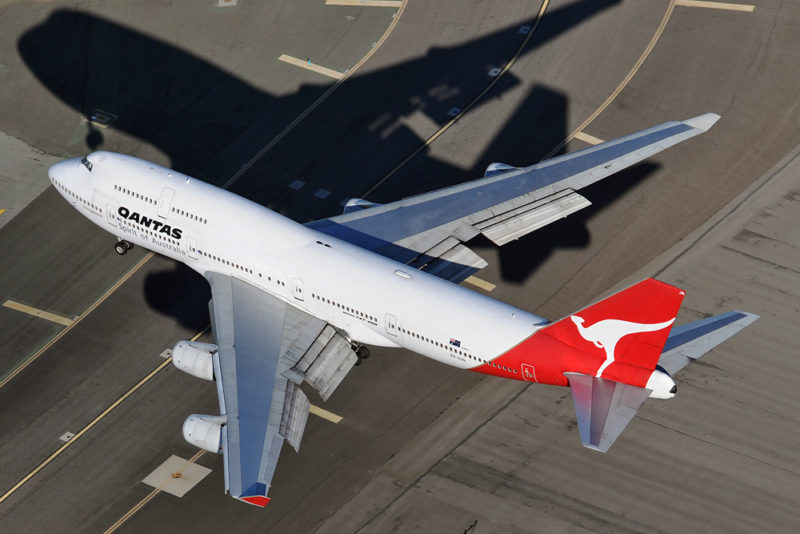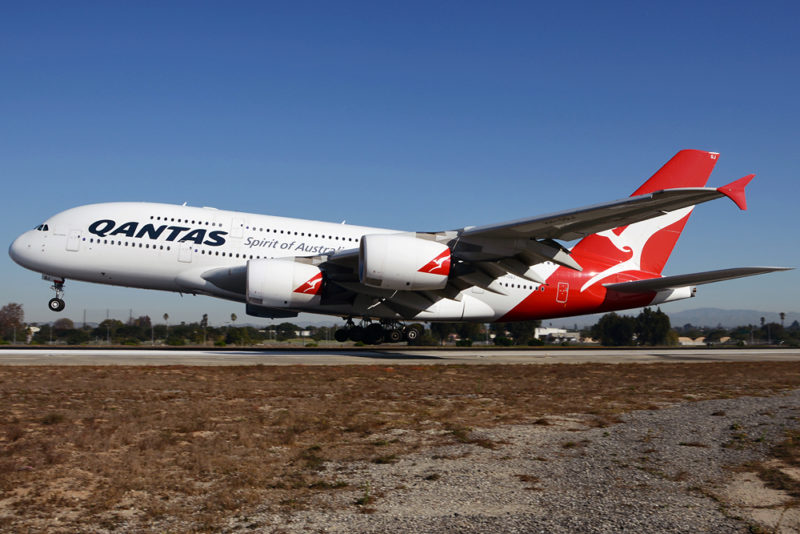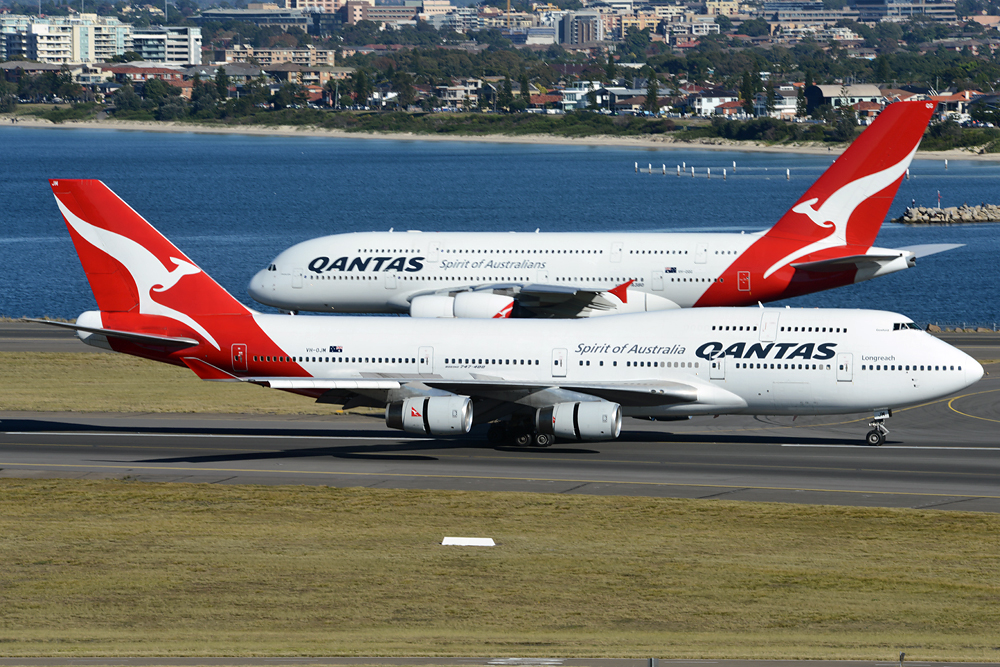The Qantas Group has announced a three year plan to accelerate their recovery from the COVID crisis.
The immediate focus of the plan is to:
- Rightsize the Group’s workforce, fleet and other costs according to demand projections, with the ability to scale up as flying returns.
- Restructure to deliver ongoing cost savings and efficiency across the Group’s operations in a changed market.
- Recapitalise through an equity raising to strengthen the Group’s financial resilience for recovery and the opportunities this presents.
COVID represents the biggest challenge ever faced by global aviation and the Group’s response to the crisis is being scaled accordingly. This unfortunately means a large number of job losses across Qantas and Jetstar. Key actions of the plan include:
- Reducing the Group’s pre-crisis workforce by at least 6,000 roles across all parts of the business.
- Continuing the stand down for 15,000 employees, particularly those associated with international operations, until flying returns.
- Retiring Qantas’ six remaining 747s immediately, six months ahead of schedule.
- Grounding up to 100 aircraft for up to 12 months (some for longer) including most of the international fleet.
- A321neo and 787-9 fleet deliveries have been deferred to meet the Group’s requirements.

Qantas CEO Commentary
“We have to position ourselves for several years where revenue will be much lower. And that means becoming a smaller airline in the short term.”
Qantas Group CEO Alan Joyce
“Adapting to this new reality means some very painful decisions. The job losses we’re announcing today are confronting. So is the fact thousands more of our people on stand down will face a long interruption to their airline careers until this work returns.”
“What makes this even harder is that right before this crisis hit, we were actively recruiting pilots, cabin crew and ground staff. We’re now facing a sudden reversal of fortune that is no one’s fault, but is very hard to accept.”
“This crisis has left us no choice but we’re committed to providing those affected with as much support as we can. That includes preserving as many jobs as possible through stand downs, offering voluntary rather than compulsory redundancies where possible, and providing large severance payouts for long serving employees in particular.”
“Despite the hard choices we’re making today, we’re fundamentally optimistic about the future. Almost two-thirds of our pre-crisis earnings came from the domestic market, which is likely to recover fastest – particularly as state borders prepare to open.”
“We still have big ambitions for long haul international flights, which will have even more potential on the other side of this.”
Equity Raising
The Board has today announced that the Group will seek to raise up to $1.9 billion. Proceeds from the Equity Raising will be used to accelerate the Group’s recovery, strengthen its balance sheet and position it to capitalise on opportunities aligned with its strategy.
Jobs at Qantas
Of the Group’s 29,000 people, around 8,000 are expected to have returned to work by the end of July this year. It is anticipated that this will increase to around 15,000 by the end of calendar year 2020, in line with the opening up of domestic flying, and increase further during calendar 2021 and 2022 as the international network returns, reaching 21,000 active employees by June 2022.
Redundancies are proposed to manage a surplus of around 6,000 roles, with the temporary surplus of around 15,000 managed through a mix of stand down, annual leave and leave without pay.
In line with its obligations, the Group will consult with relevant unions on the proposed job losses announced today. These span the following areas of Qantas and Jetstar:
- Non-operational – at least 1,450 job losses, mainly in corporate roles, due to less flying activity.
- Ground operations – at least 1,500 job losses across airports, baggage handling, fleet presentation and ramp operations due to less flying activity.
- Cabin crew – at least 1,050 job losses due to early retirement of the 747s and less flying activity. A further 6,900 cabin crew will be on stand down from July 2020 onward.
- Engineering – at least 630 job losses due to 747 retirement, less flying activity (particularly of the wide-body fleet) and redistribution of work from Jetstar’s Newcastle base to make better use of existing maintenance capacity in Melbourne.
- Pilots – at least 220 job losses mostly due to early retirement of the 747s. A further 2,900 pilots will be on stand down from July 2020 onward.
A380 Fleet Asset Impairment
While most of the Group’s long-haul aircraft are expected to steadily return to service over time, there is significant uncertainty as to when flying levels will support its 12 Airbus A380s. These assets will be idle for the foreseeable future, which represents a significant percentage of their remaining useful life. As a result the carrying value of the A380 fleet, spare engines and spare parts will be written down to their fair value, resulting in an estimated non-cash impairment charge in the FY20 statutory result. This represents the majority of the asset impairment charge of $1.25–$1.4 billion, outlined in the table below.

Qantas Financial Performance FY2020
After reporting a strong Underlying Profit Before Tax of $771 million in the first half of FY20, the Group saw a significant reduction in revenue during the second half. By taking swift action to reduce its cash burn as travel demand evaporated, the Group expects to report a full year result between break even and a small underlying profit before tax.
Qantas Loyalty is expected to make the largest positive contribution to this result; with only a 5%–10% reduction in earnings, compared to FY19, as a result of the impact of COVID on travel related products and credit card spend. The program continues to see strong levels of engagement, with a range of initiatives planned over the next six months to maintain and improve its value to members and partners.
Qantas Freight performed strongly, driven by major increases in eCommerce that are also expected to continue.
The table below reflects the Group’s current expectations of significant items it expects to recognise outside of its Underlying FY20 result.
| Items outside of Underlying FY20 | 1H20 Impact (previously reported) | Estimated FY20 impact (subject to review and audit processes) |
| Transformation costs and discretionary bonuses to non-executive employees awarded in prior years | $123 million | ~$200 million |
| Recovery plan restructuring costs including redundancies | NIL | $600-700 million |
| Asset impairments including the A380 fleet (non-cash) | NIL | $1,250-1,400 million |
| Hedge ineffectivenes (non-cash) | NIL | $550-600 million |
| Total | $123 million | ~$2.8 billion |
Article Source: Qantas Quotation are in Australian Dollar (AUD$)




